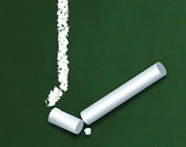The Line

6:00pm the witching hour. Up since 5:30 in the morning with baby, no shower, rice cereal for lunch (we mean you, not the baby), spit on your shoulder, Raffi playing for the 10th time today in the background and Jack refusing to eat the broccoli you cooked and pureed for him. This day has got to end.
We all have those mom days when we have (or would like to have) dissolved into tears on the kitchen floor. But there is a fine line between ‘normal hormonal’ tears and the more serious tears – ones that are a result of depression. The difficulty is often how to distinguish between the two.
We’ve learned that we moms are not alone:
- For reasons not entirely clear, women are twice as likely as men to experience major depression.
- 25% of women will experience depression in their lifetime.
- 15 – 20% of new moms will experience postpartum illness (which can come anytime within the first year after giving birth).
So, we set out to find out more about where that fine line was from Dr. Ariel Dalfen, MD, who is a new mom herself.
She is also a staff psychiatrist at Mount Sinai Hospital (Toronto), specializing in treating women with mental health issues related to pregnancy, infertility, pregnancy loss, and parenting, and she shared with us the signs to watch out for and what to do.
The Signs – When to Draw That Line
Symptoms of depression can include:
- Not enjoying life and your usual interests
- Changes in eating/sleeping patterns (e.g. inability to fall asleep even if you are exhausted)
- Low energy and mood
- Inability to make decisions
- Poor concentration and memory
- Guilty feelings
- Social withdrawal
- Postpartum depression symptoms may also include “scary thoughts” about harming baby or obsessive thoughts about baby’s health and well being.
While we all may experience degrees of these symptoms, Dr. Dalfen says that if you find yourself feeling sad more days than not, if they last more than two weeks or if symptoms start to interfere with your home or work life, that line may have been crossed and the time might be right to seek some help.
The First Step
The first step is to see your family doctor for a medical diagnosis and rule out any other medical problems such as thyroid disorder or anemia (which often share similar symptoms).
If necessary, your family doctor will then be able to refer you to an appropriate therapist or psychiatrist, depending on your medical history and symptoms.
Prevention is the Best Medicine.
There are certain things you can do to depression-proof yourself. A strong supportive social network (friends, family, mothers’ groups), exercise, a balanced diet and regular meals, getting enough rest and taking time for yourself are all “doctor-recommended”.
So pay attention to your emotional “line”. You might avoid crossing it by taking care of yourself.





